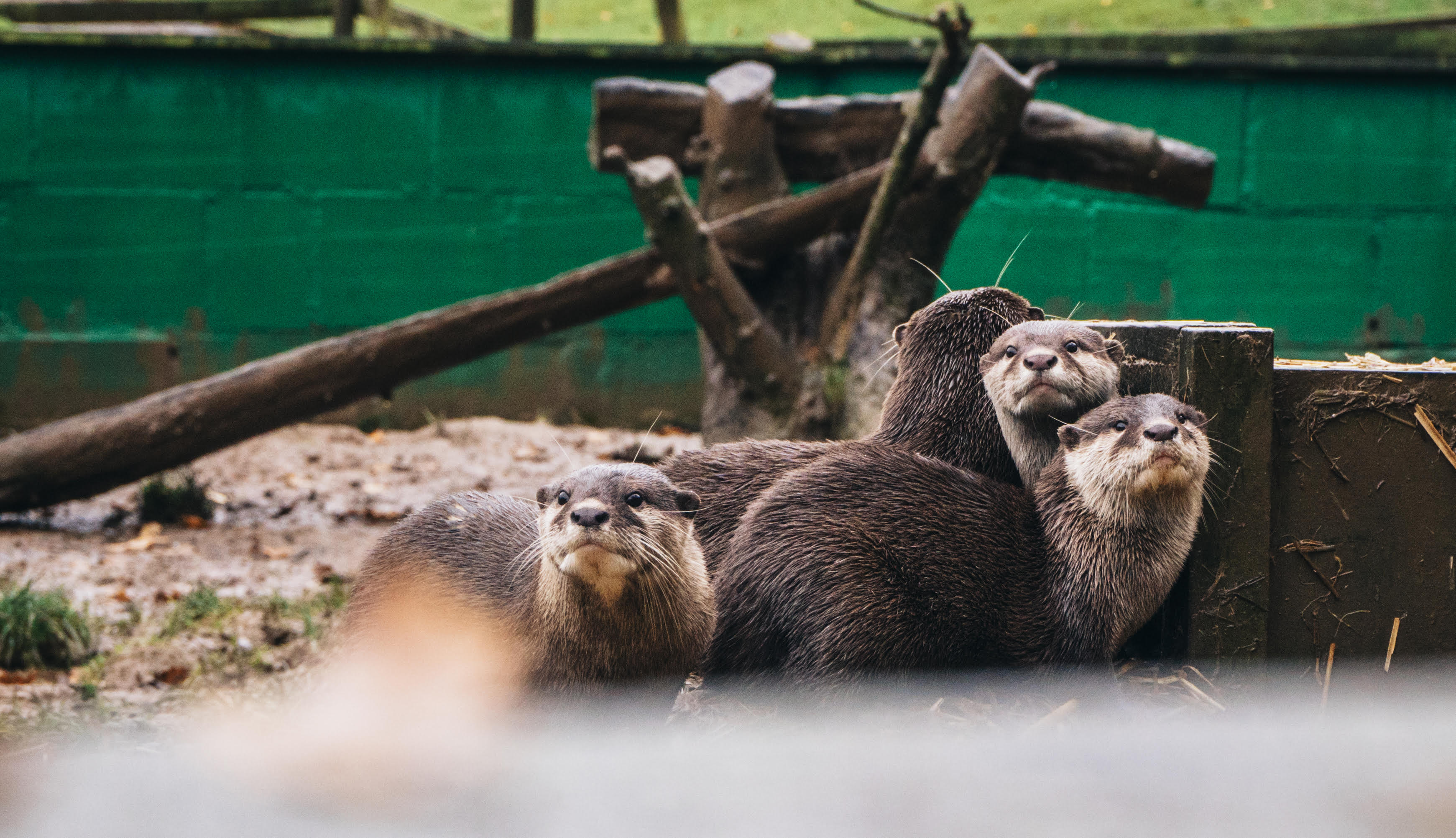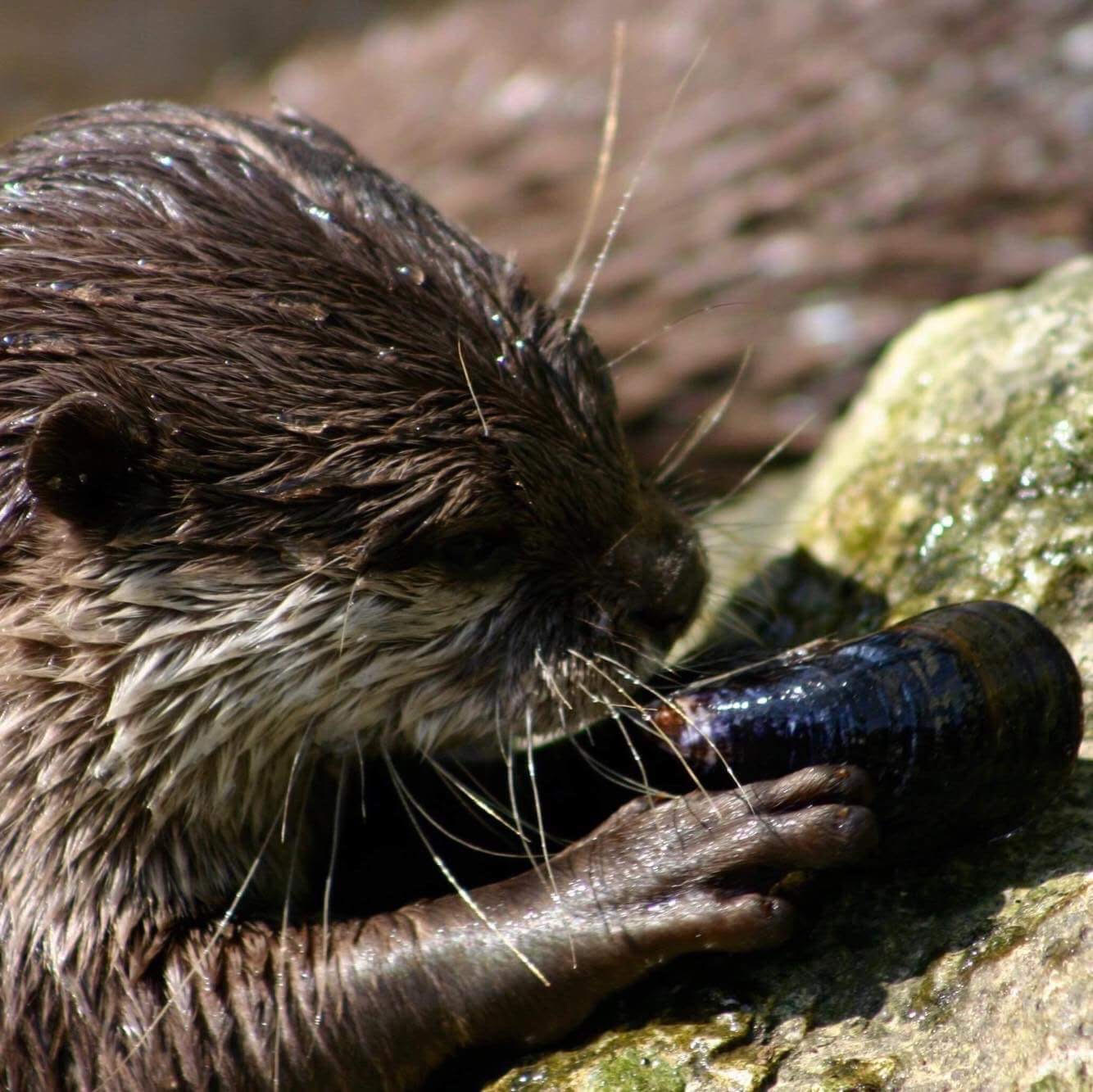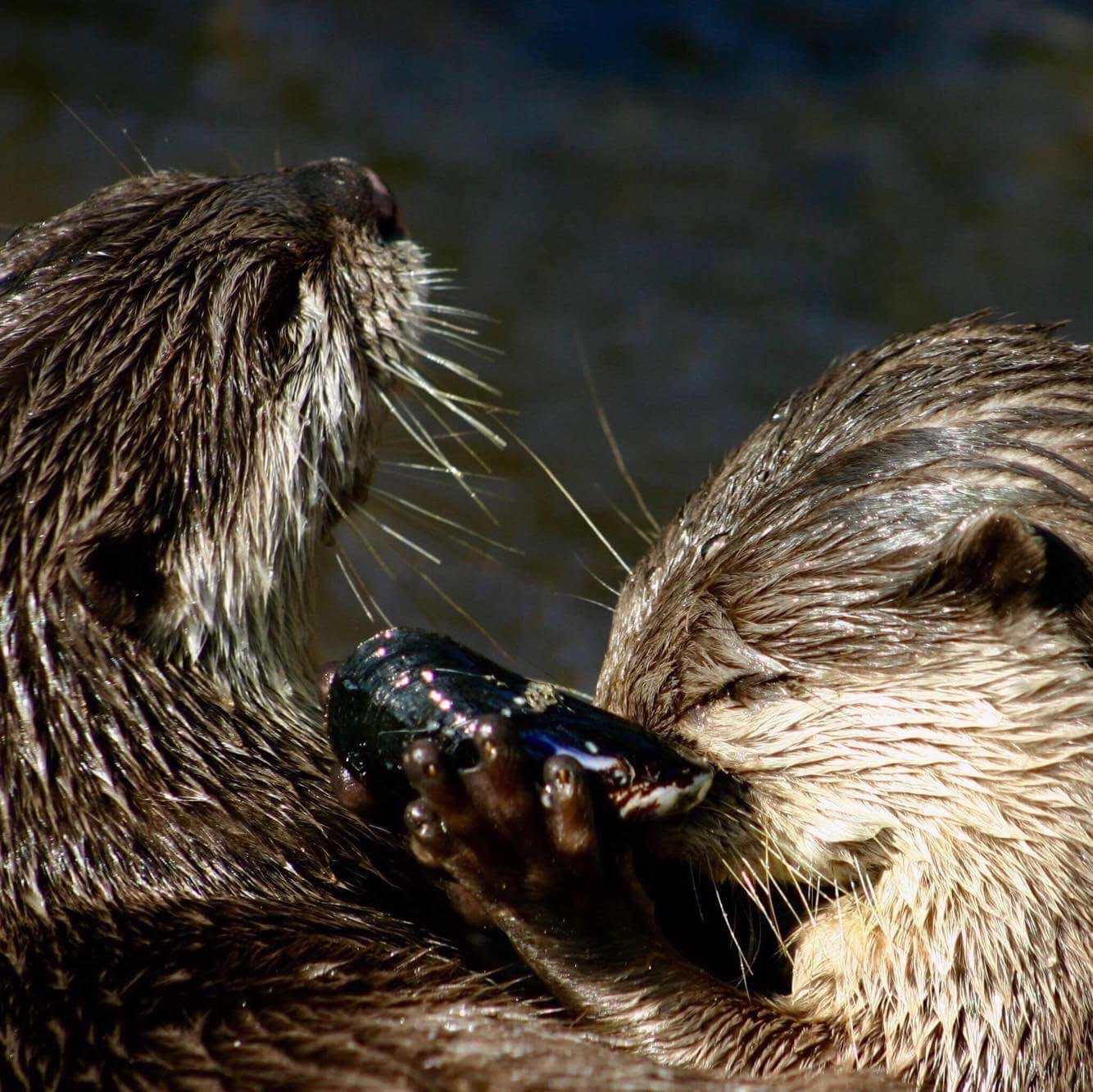PeerJ talked to Madison Bowden-Parry about the recently published article “Effects of food type and abundance on begging and sharing in Asian small-clawed otters (Aonyx cinereus)”.
Can you tell us a bit about yourself?
I’m a 24-year-old MSc graduate in Evolutionary and Behavioural Ecology with the University of Exeter (Centre for Ecology and Conservation). I am interested in conservation ecology, social ecology and evolution and am a keen science communicator, naturalist and natural history photographer. I hope to find a PhD position in the near future!
Can you briefly explain the research you published in PeerJ?
Begging and food sharing are common behaviours in the animal kingdom and have received a lot of research attention in a parent-offspring context. Evidence suggests that offspring begging can be an honest signal of hunger, or motivated by competition between siblings for food. Sharing food with kin is easily explained by inclusive fitness benefits, but at a more mechanistic level, sharing food may be motivated by avoiding harassment from a persistent beggar, known as the “harassment avoidance” or “sharing-under-pressure hypothesis”. In a parent-offspring context, food transfers can be dependent on age-class and foraging efficiency. Moreover, both begging and food sharing behaviours can be influenced by food type and abundance.
In this study, we tested whether begging and food sharing rates were correlated, whether ecological factors like food type and abundance influenced variation in begging and food sharing rates, and whether foraging efficiency and begging and sharing rates differed between age-classes in two captive family groups of Asian small-clawed otters.
We found that over time, as begging increased, food transfers also increased, providing support for the sharing-under-pressure hypothesis. Food type and abundance had relatively little influence on begging and sharing in Asian small-clawed otters, but juveniles begged significantly more and shared less than adults.
Do you have any anecdotes about this research?
This project was extremely exciting and rewarding from the start. Unsurprisingly, spending most of your time with otters is very enjoyable! One of my most memorable moments was the otters’ scent marking ‘dance’. After a dip or feeding, otters will scent mark by rubbing their bellies, back and face into the wood chippings or logs in their enclosure, but really, it just looked like they were dancing. I have a lot of this behaviour on video and I’m very glad about that!
What kinds of lessons do you hope your readers take away from the research?
Our study provides the first experimental exploration into both begging and food sharing behaviours in this species and within the whole Mustelid family. Begging was frequent in this study and seemed to vary considerably across both age groups. We suggest that future studies consider the effect of partner-choice and social network structure on food transfers.
How did you first hear about PeerJ, and what persuaded you to submit to us?
I was recommended PeerJ by co-author and supervisor Dr. Neeltje Boogert. The open access, affordable and inclusive nature of the journal encouraged us to submit to PeerJ.
How would you describe your experience of our submission/review process?
Both thorough and streamlined. The submission process was simple, and the online portal was extremely easy to navigate and use. The peer review process was very thorough and helpful and overall, the submission to publication timeline was very fast and efficient.
Would you submit again, and would you recommend that your colleagues submit?
Absolutely, yes!
You can find more PeerJ author interviews here. Read more zoology research in the PeerJ Zoological Science Section.



